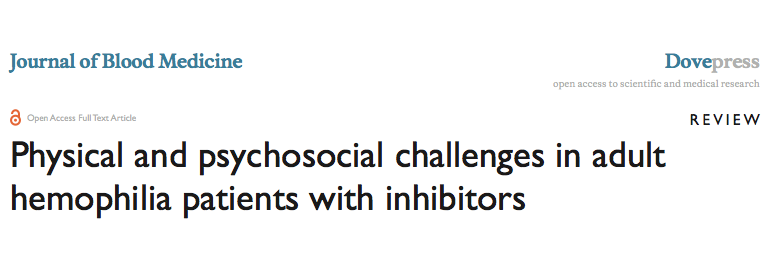Inhibitors are antibodies that the immune system develops because it sees the infused clotting factor as a foreign substance that needs to be destroyed. Antibodies are proteins that eat up the activated factor before it has time to stop the bleeding.
- Approximately 30% of people with severe Hemophilia A are affected by inhibitors at some point in their lives. An inhibitor usually occurs between the 5th and 50th infusion of factor concentrate, but in rare cases can also be developed later in life
- While people with severe hemophilia are more likely to develop inhibitors, approximately 5-8% of people with mild or moderate hemophilia A develop inhibitors. The antibodies destroy not only the factor concentrate infused but also the small percentage of factor protein that the body was producing naturally.
- Approximately 2-3% of people with hemophilia B develop inhibitors. While inhibitors in people with hemophilia B are less common than hemophilia A, it can be even more challenging as about half of Hemophilia B inhibitor patients will develop an anaphylactic reaction to infused factor IX, which can be life-threatening.
- A recently released study published in the journal Haemophilia has published the results of a six-year study called the Hemophilia Inhibitor Research Study (HIRS) that was designed to test the feasibility of conducting national monitoring for inhibitors among people with hemophilia in the United States.  The study collected blood specimens on a regular basis from study participants, which were tested at CDC for the presence of an inhibitor. Data were also collected to learn who was at highest risk for developing an inhibitor. Regular testing for an inhibitor is important because the treatment to get rid of the inhibitor is more successful when an inhibitor is identified early. Main findings from this study include:
- All people with hemophilia are at risk for developing inhibitor
- One-third of newly-developed inhibitors were found in people with non-severe hemophilia
- One-half were over the age 5 years
- One quarter had used infused factor for more than 150 days
- Six out of ten people with hemophilia with an inhibitor had no symptoms
- Regular screening of people with hemophilia for early detection of an inhibitor by the CDC laboratory is feasible, and will inform efforts to measure rates of this complication
____________________________
 The Journal of Blood Medicine published an important article on July 22, 2014 called:Â Physical and Psychosocial Challenges in Adult Hemophilia Patients with Inhibitors.
The Journal of Blood Medicine published an important article on July 22, 2014 called:Â Physical and Psychosocial Challenges in Adult Hemophilia Patients with Inhibitors.
Abstract:Â Numerous challenges confront adult hemophilia patients with inhibitors, including difficulty in controlling bleeding episodes, deterioration of joints, arthritic pain, physical disability, emotional turmoil, and social issues. High-intensity treatment regimens often used in the treatment of patients with inhibitors also impose significant scheduling, economic, and emotional demands on patients and their families or primary caregivers.
A comprehensive multidisciplinary assessment of the physical, emotional, and social status of adult hemophilia patients with inhibitors is essential for the development of treatment strategies that can be individualized to address the complex needs of these patients.



